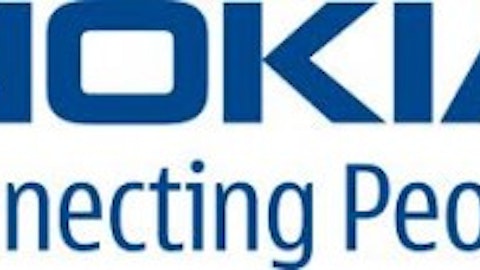There is a growing division between consumer-oriented and business-oriented computing and information technology companies. Many firms are targeting business clients, particularly those in cloud computing and networking. This would be great if there were not many desperate companies vying for this market, and if large companies didn’t try to make inroads into this new territory by making acquisitions. However, since there is fierce competition in this space, investors should demand low valuations while avoiding firms that perpetually make acquisitions. I will examine International Business Machines Corp. (NYSE:IBM) and Brocade Communications Systems, Inc. (NASDAQ:BRCD) in this context to see if they meet this criteria. I will also compare them to Hewlett-Packard Company (NYSE:HPQ) , which has been struggling in its core business areas.

Ginni Rometty has pushed for a transition in the business strategy during her first year as the Chief Executive Officer of the company. Currently, the business focuses on more profitable venture such as software for data analysis, moving away from hardware, which is becoming a commodity product. Currently, the company expects to earn $20 per share by 2015. She has placed a five-year plan to draw the largest profit possible from software by 2015.
According to Josh Olson, an analyst at Edward Jones, “She had some big shoes to fill, and expectations were very high. This could be characterized as an adjustment year, one where she is mapping her course, and it’s largely been similar to what we’re used to from IBM.”
Last year, Rometty divested the retail hardware business, purchased data analysis providers and software, and added new technology to assist clients in accessing data from remote computers through cloud computing. The company is also focusing on squeezing out greater revenue from its consulting contracts by looking for better deals in emerging markets.
According to David Grossman, an analyst with Stifel Nicolaus, the company is continuously evolving its strategy and is focusing on balancing its mature business that generates cash with more promising new markets, such as analytics.
The company’s fourth quarter income, excluding certain items such as amortization and pension costs, increased to $6.1 billion, or $5.39 per share. Sales slipped by 1% to $29.30 billion, but came in above the average estimate of $29.10 billion of 21 analysts. The company reported revenue of $104.50 billion for 2012, and analysts anticipate revenues will grow to $106 billion for 2013. During the quarter, the company’s services backlog from various contracts reached $140 billion, compared to $138 billion in the third quarter.
According to Chief Financial Officer Mark Loughridge, sales of the Global Business Services will improve this year after a 4% decline to $18.6 billion in 2012. This is the consulting unit of the company.
Last year the company’s acquisitions totaled $3.7 billion for 11 companies, including $1.3 billion for Kenexa, a company that uses social networking to assist businesses that handle human resources and recruiting. The company also plans to spend $20 billion on acquisitions between 2011 and 2015. Since acquiring companies often overpay for their targets, this is bad news.
Lloyd Carney, CEO of Brocade Communications Systems, Inc. (NASDAQ:BRCD) Systems, denied that he is trying to sell the company. This is in contrast to the company’s previous CEO, Mike Klayko, who had looked for a buyer.
Mr. Carney was appointed as the Chief Executive officer of the company in January, 2013. Previously, he served as the CEO of Xsigo Systems, which was acquired by Oracle Corporation (NASDAQ:ORCL). Earlier he led Micromuse, which was later acquired by IBM in 2006. He served at Xsigo Systems for five years and Micromuse for three years before they were acquired. Klayko’s resignation was seen as a step by the board of directors to speed up the sale of the company since Mr. Carney has sold multiple firms under his control.





